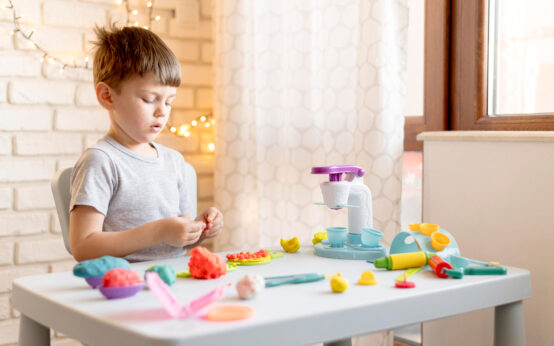Introduction
Enrolling a child with disabilities, autism, or additional needs in preschool marks a significant milestone. There are proactive measures parents can take to ensure a positive and successful start. This article outlines key strategies for preparing children with autism or disabilities for preschool fostering collaboration with educators and seeking support from professionals.
Developing an Individual Education and Care Plan
Education and care plan preparing children with autism or disabilities for preschool serves as a roadmap for educators to understand and support your child’s unique needs. This plan includes your child’s strengths, interests, goals (short-term and long-term), and specific assistance and support requirements. Collaboration with professionals working with your child, such as occupational therapists or speech pathologists, can enrich the plan.

Every child, like a rare and beautiful puzzle piece, brings a unique pattern to the grand mosaic of humanity. Embracing and nurturing the colors of children with autism in preschool not only enriches their journey but also paints a more vibrant and compassionate future for us all.
Dr. Stephen Shore
Sharing Medical Management Plans
For children with special health care needs, allergies, or medical conditions, a medical management plan is crucial. This plan, prepared by your child’s doctor, outlines details like medication administration, special equipment usage, and emergency protocols. It ensures that educators are well-informed and adequately trained to address your child’s health requirements.

Organizing Visits to the Preschool
To ease the transition, organize visits to the preschool in the weeks leading up to the start date. These visits offer an opportunity for both you and your child to familiarize yourselves with the environment, educators, and routines. Some preschools may offer orientation programs, transition mornings, or playgroups to facilitate a smoother entry.

Planning Regular Meetings in the First Few Months
Regular meetings with educators during the initial months foster a strong relationship and provide a platform to assess the effectiveness of the individual education and care plan. Discussions can cover your child’s progress, adjustments to the plan, and any concerns or suggestions you may have. Communication can be in person, over the phone, or online, based on your preferences.

Seeking Support from Professionals
Your child’s disability and health professionals can play a vital role in supporting the transition to preschool. Collaborating with specialists, such as speech pathologists or occupational therapists, can enhance the understanding of your child’s needs and provide valuable strategies to support their integration into the preschool environment.

Advocating for Your Child
If concerns arise once your child has started preschool, open and respectful communication with educators or the preschool director is essential. Advocating for additional strategies, adjustments, or supports demonstrates your commitment to your child’s positive experience. Educators should be receptive to finding collaborative solutions that enhance your child’s preschool journey.

Conclusion
By actively participating in your child’s preschool experience and implementing these strategies, you contribute to creating a supportive and enriching environment. Proactive measures, open communication, and collaboration between parents, educators, and professionals pave the way for a successful and positive early childhood development experience for children with disabilities, autism, or additional needs.







